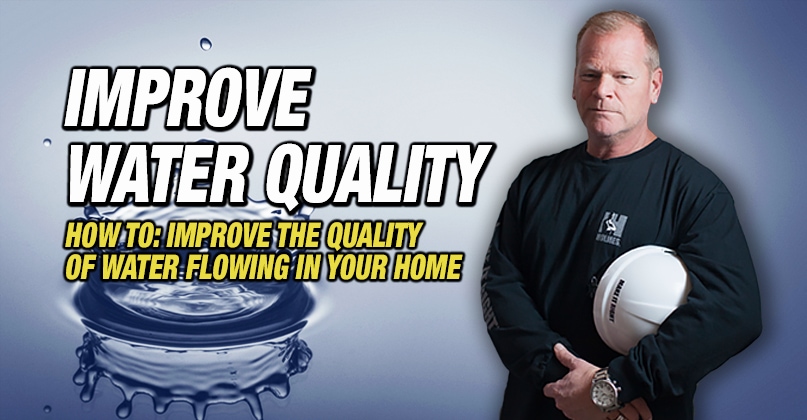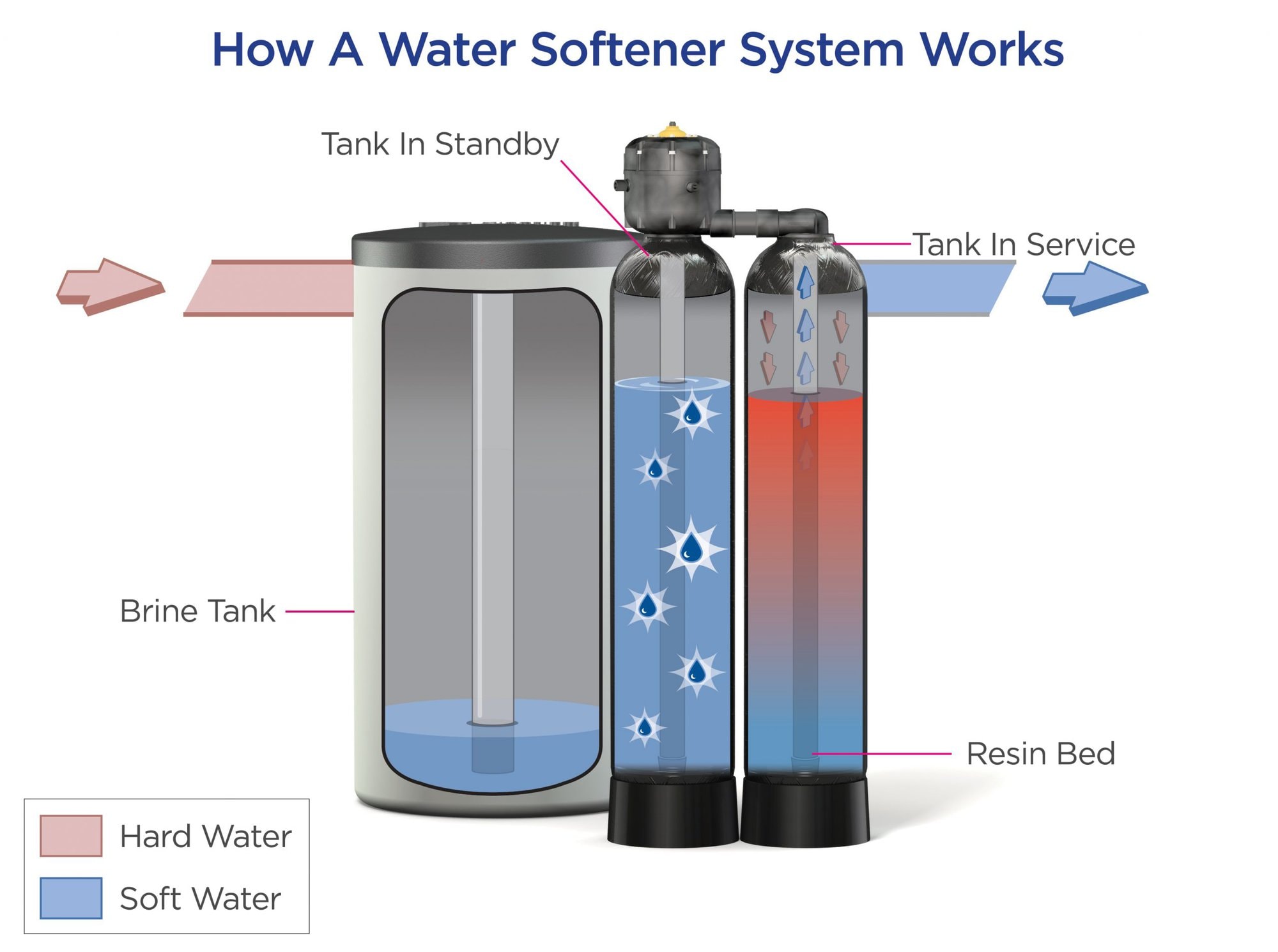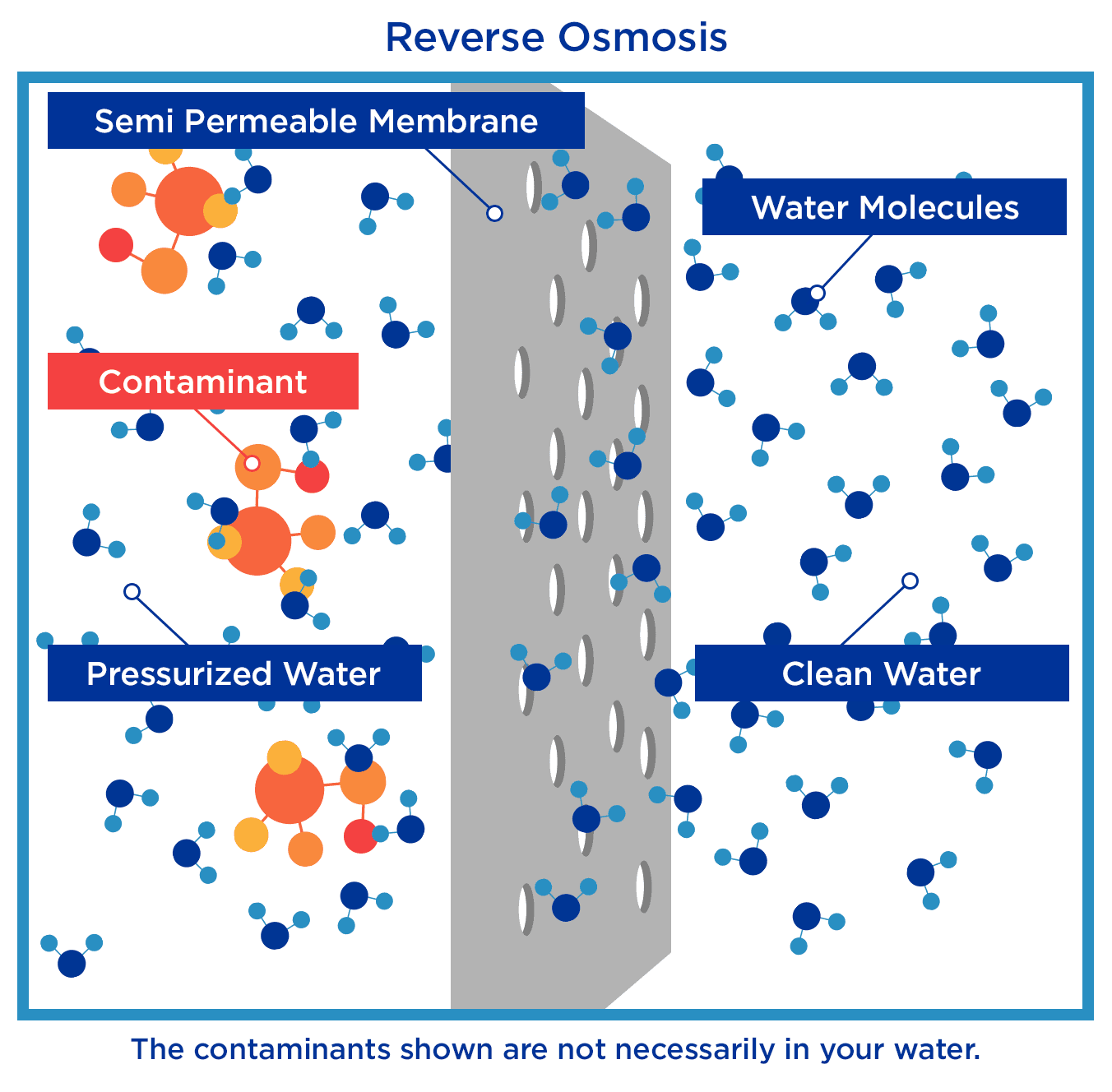I love exploring new technology—especially when it genuinely improves how we work in construction—and I recently came across one that truly impressed me, iGUIDE by Planitar Inc. In my...
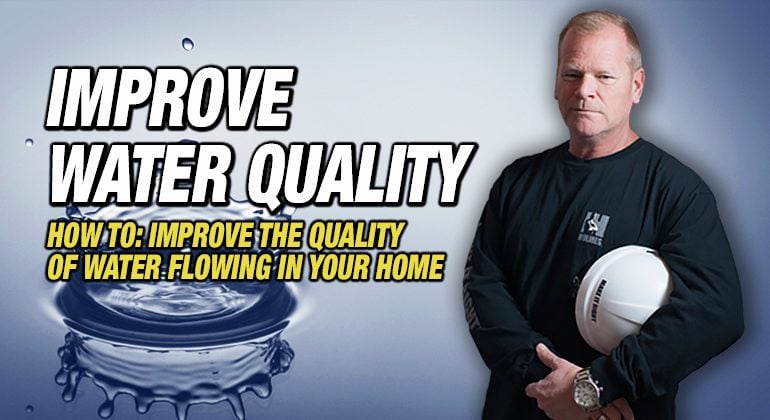
How To: Improve The Quality of Water Flowing In Your Home
By Mike Holmes
Mike’s Advice / Home Safety & Maintenance
Thursday, January 28th, 2021 @ 3:33pm
Water Treatment Guide – Creating Quality Water
We use water in all facets of our life, to cook with and drink. We also use water to clean, bathe and perform other numerous household tasks.
The quality of the water we use contributes to a healthy home, as well as our own health. So it makes sense that if you improve the quality of the water you use and consume, you can improve the quality of your life, right? Let’s break that down further.
What Is Water Quality?
How often do you think about the quality of your water? We use it every day, but unless something is noticeably off with your water – you probably don’t give it much thought. However, the quality of the water flowing through your home can negatively impact your health. To me, it makes sense to take steps to ensure that the water quality in your home is at its best because it makes a difference.
Your water quality may vary depending on where you live and where your source of water originates. If you live in the city, you would typically rely on a municipal water system to pump water into your home. It stands to reason that means it’s perfectly safe and healthy to consume. However, that’s only partially true.
The water pumped into your home is treated. But it’s often only treated to minimum standards -and that’s not good enough for me. Whenever possible we should strive to go over the minimum standard, making it right.

Testing my water sample with Kinetico’s water experts. Schedule your water test to find out more about the quality of your water
One important perspective to think of with a city water system is that the water quality is affected by the quality or condition of the distribution system: the water pipes it travels through to provide service. At first glance, the water may be treated to the applicable standards and deemed clean at the plant, but water contaminants may infiltrate during the delivery process creating water problems that may or may not always be visible.
If on the other hand, you live out in the country, you are probably reliant on a well water system. In this case, you as the homeowner are entirely responsible for your home’s water quality and any water treatment that it requires.
Why Is It Important I Care About Water Quality?
When our water quality is poor, it can contribute to a number of negative side effects. In our drinking water, we could be ingesting contaminants that negatively affect our health. It may add a funny taste to meals or the water we consume. In our appliances, poor quality water can cause our appliances to break down much sooner, or in some instances, it can also irritate our skin or hair when we bathe.
Common Water Issues and How You Can Improve Your Water Quality
Can you diagnose problems with your own water? In some cases, yes, you’ll be able to taste if something’s off. Other times, water issues will leave visual cues like staining or white chalky deposits – but not every issue will obviously present itself.
Contaminants often found in water:
- Chlorine
- Lead
- Chromium
- Arsenic
- Bacteria and viruses
- Radon
RELATED
What Are Some Of The Issues Water Contaminants Can Cause?
Some may sound scarier than others, but here are some issues these contaminants can lead to:
- Hard water
- Scale/limescale buildup
- Bad tastes and odours
- Red stains from iron
- Black stains from manganese
- Green/Blue stains from low pH values
- Health concerns from longtime consumption of water with contaminants
The best way to know what quality water you have, is to have a water sample tested. You can test your water for hardness, iron, pH, contaminants, plus much more. Water quality testing is an important first step because your test results will dictate what kind of water treatment solutions, if any, your professional will recommend.
FIND OUT MORE
What Water Treatment Methods Do I Need?
Depending on your test results, your water system may require different solutions. Here are some common ways to improve the quality of your home’s water.
Hard water is defined by the amount of calcium and magnesium in your water, and one obvious sign is seeing white buildup around your fixtures.
While it’s generally safe to drink, it may not be the best option for everyday household tasks. If you use the water for bathing, for example, hard water may cause your skin to become irritated, itchy, or to break out, and your hair to become dull, tangled, and brittle.
Moreover, as it flows through your home, hard water can wreak havoc on your laundry, causing the fabric to break down more quickly. Additionally, when piped through your dishwasher, it can leave water spots on the dishes and leave calcium buildup inside. Most importantly, in serious cases, the hard water can cause mineral buildup in your pipes and eventually clog them.
It is also important to measure the Total Dissolved Solids (TDS) levels in your water, which is a measure of the total amount of inorganic and organic substances in a liquid. A high number typically indicates that there are a lot of solids dissolved in your water like sulfates, salts, minerals, metals, etc. and likely means that you need a water filtration system installed in your home.
Installing a water softener in your home reduces the hardness of your water, and will also reduce the scale buildup in your pipes, and reduce the staining you see from iron and manganese. Having soft water can help extend the life of your appliances.
Water Filtration Systems
A water filtration system will help eliminate particles and unwanted substances that may have crept into your water supply.
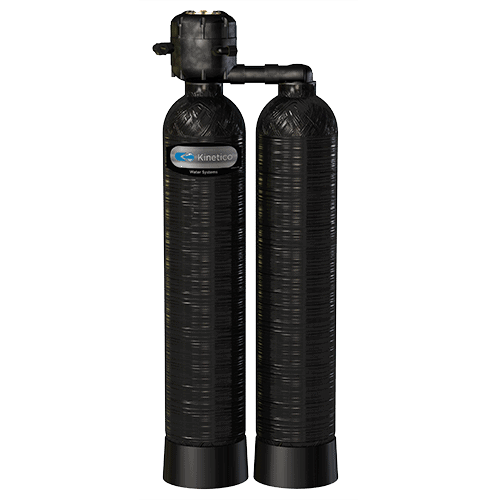
These systems are typically meant to service the entire home and can tackle many of your water issues.
Chlorine reduction systems can remove that unwanted chlorine taste and smell from your water supply, reduce your risk of skin and hair dryness, and prevent chlorine from deteriorating rubber seals and parts in appliances. An iron filter can help prevent unwanted staining around your fixtures, and even in your hair.
A whole house water filtration system is a great solution to ensure that every drop of water that flows through your home is clean, crisp, and worry-free. Whole-home water treatment is something I would recommend you look into.
RELATED
Drinking Water Systems
To me, ensuring the tap water we use every day is clean and tastes great is of the utmost priority when we’re talking about our water system. Drinking the recommended amount of clean water that’s treated right in your home helps you stay healthy. It also reduces the need to use disposable plastic water bottles. This also goes back to sustainability and doing our part to be just a little bit more environmentally conscious, which is something I’m really passionate about.
There are a few options to consider when installing a drinking water filtration system in your home. My favourite is the reverse osmosis (RO) system. Water is forced through a semipermeable membrane using high pressure allowing only pure water molecules to flow through. The contaminants are left behind, so you’re only drinking clean, healthy water.
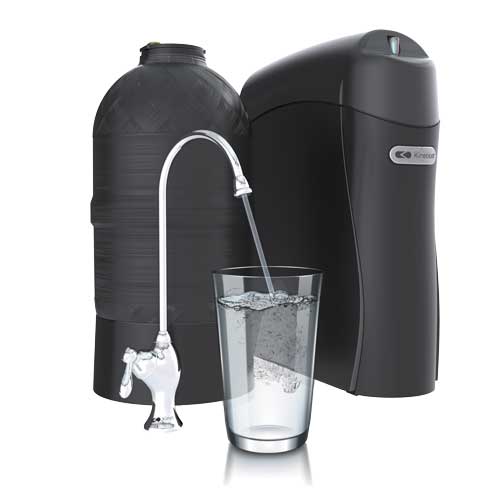
Not only do these systems improve the quality of your water, but you’ll also even be able to taste the difference.
READ MORE
And depending on your RO system, some can filter out specific harmful substances and return beneficial minerals back in before the water leaves the tap, providing some extra health benefits.
The water in your home can vastly affect your quality of life. So it makes sense when I say that by taking steps to improve the water quality in your home, you’ll be improving your life.
READ NEXT
7 ways to conserve water in your home
How To Remove Radon From Your Well
